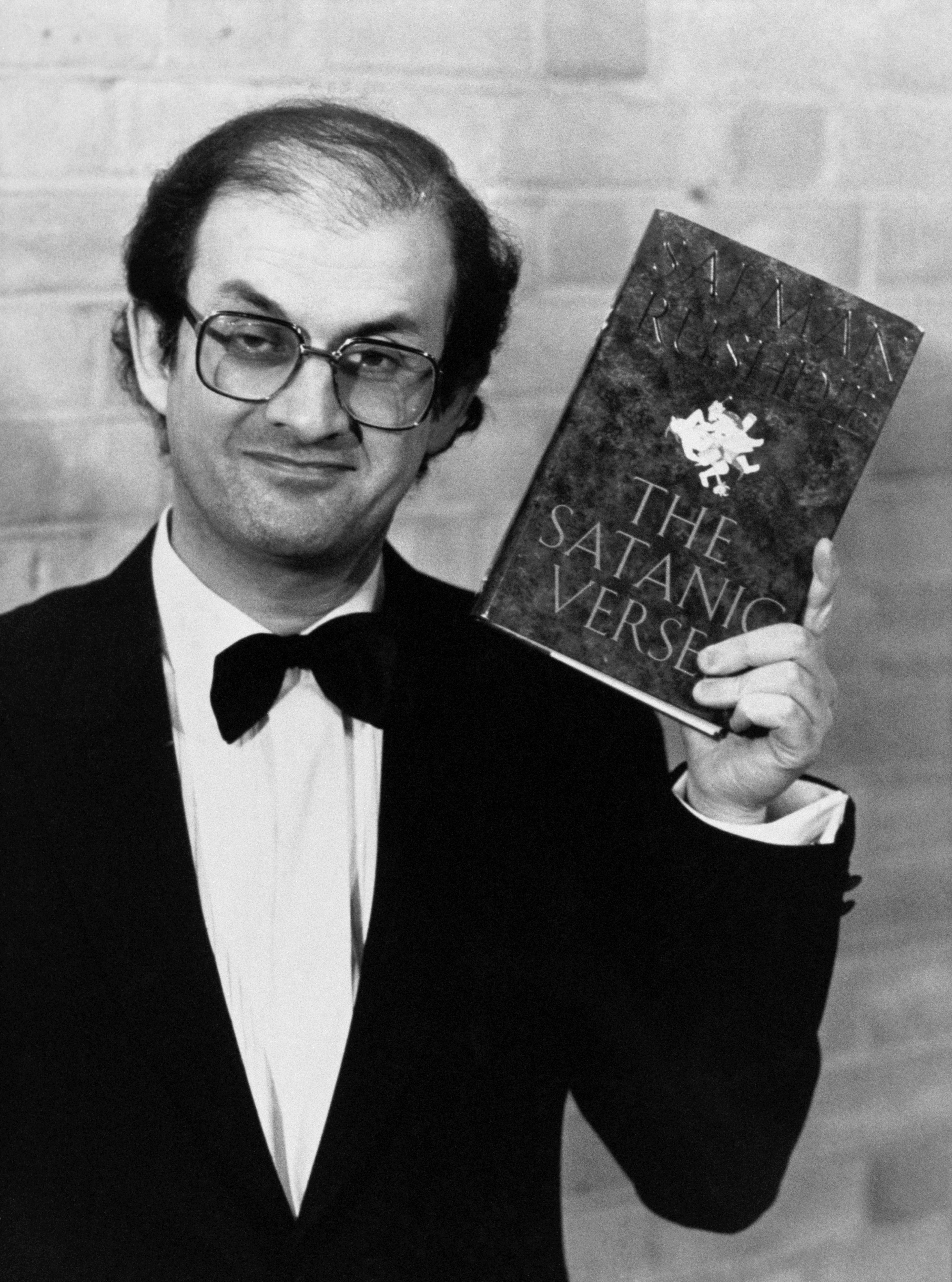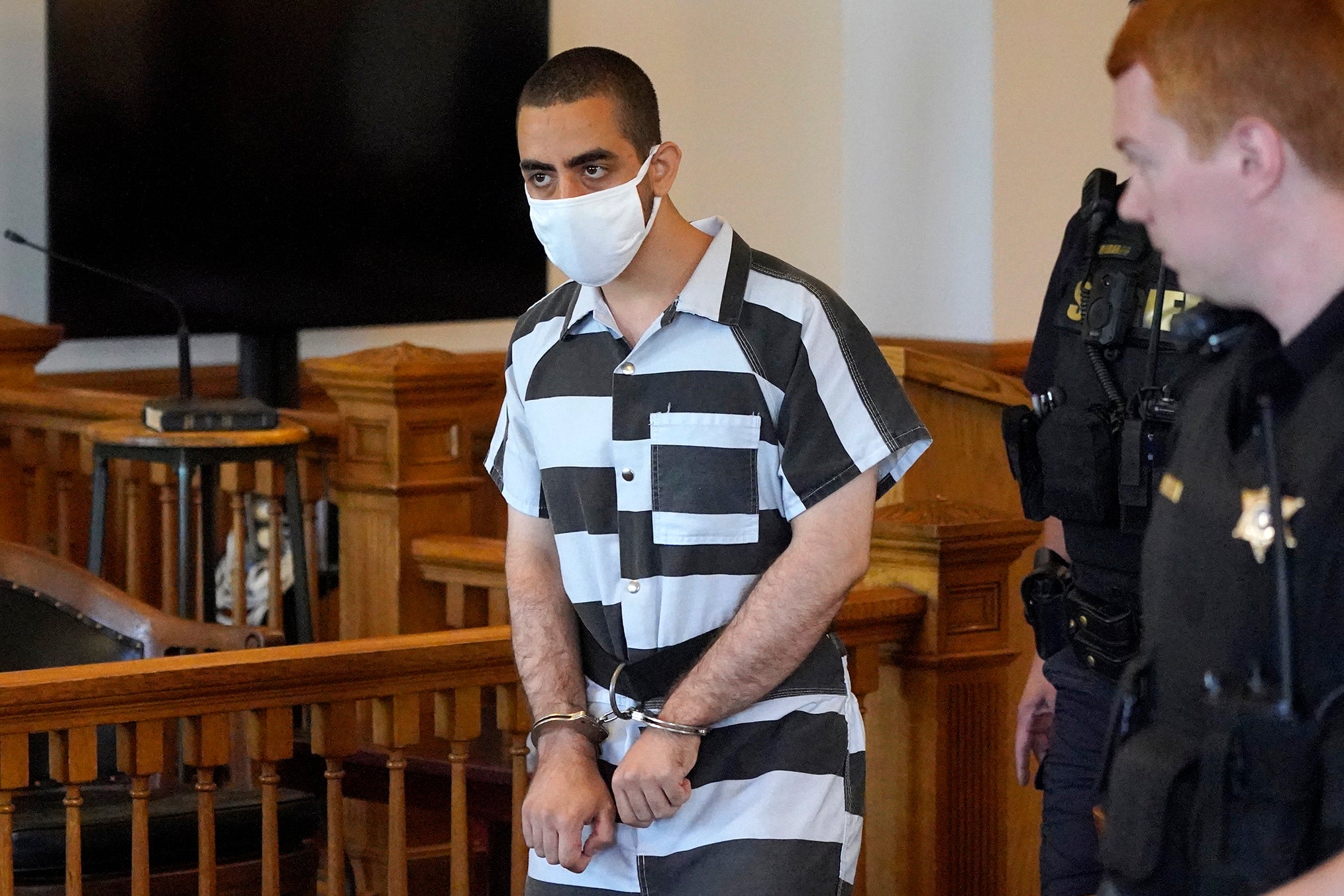Why was stabbing trial for Salman Rushdie attacker delayed?
Rushdie doesn’t know if he wants to face his attacker in court: ‘A bit of me that just can’t be bothered’
Salman Rushdie’s alleged attacker’s trial has been delayed ahead of the publication of his new book, Knife: Meditations After an Attempted Murder.
The book is a memoir about the 2022 attack that very nearly cost the author, 76, his life after he was repeatedly stabbed ahead of a lecture on free speech at the Chautauqua Institution in New York state.
The suspect Hadi Matar, then 24, was subsequently charged with attempted second-degree murder and second-degree assault.
He has remained incarcerated without bail since the incident that saw the author hospitalised for six weeks.
Rushdie was ultimately left with permenant damage to one hand and the loss of sight in one eye.
Matar, who pled not guilty, said he disliked Rushdie because of his alleged critical views of Islam.

It was this so-called critique of Islam that saw a fatwa - assassination order - issued against him by Iran in 1989 following the release of his controversial novel, The Satanic Verses.
While this fatwa was subsequently withdrawn in 1998, the threats against Rushdie persisted, although he did return to public life after going into hiding for the best part of a decade.
Matar, from Fairview, New Jersey, was initially due to stand trial for his alleged crimes against the author on January 8.
But at the start of this year, his attorneys argued that his trial could not proceed until they reviewed the British author’s new book, which may be used as evidence.
“It will not change the ultimate outcome,” Chautauqua County District Attorney Jason Schmidt said.

The prosecution stressed that as the incident took place in front of a large audience, the book is unlikely to affect the criminal proceedings against Matar.
The crowd had gathered at the Chautauqua Institution to hear the acclaimed author speak about the importance of freedom of expression - a subject he has frequently discussed after a fatwa was issued against him for a fictional work.
Muslims found many points of contention in The Satanic Versus, including an unflattering portrayal of a character likened to the Prophet Muhammed.
Matar’s mother, Silvana Fardos, spoke out after the August 2022 attack, claiming her son was radicalized by Islamic extremists during a trip to Lebanon in 2018.
“I was expecting him to come back motivated, to complete school, to get his degree and a job,” she told the MailOnline.
“But instead he locked himself in the basement. He had changed a lot, he didn’t say anything to me or his sisters for months.”

Matar, however, denied any association with terrorist groups and insisted on his independent dislike of Rushdie.
“I don’t like the person. I don’t think he’s a very good person,” he insisted. “He’s someone who attacked Islam, he attacked their beliefs, the belief systems.”
In prison, Matar praised the former Iranian leader Ayatollah Ruhollah Khomeini, who issued the fatwa against Rushdie.
Rushdie said he wrote his new book to come to terms with the 2022 attack, but admitted that he doesn’t know if he wants to face his attacker in court.
“I’m in two minds about it,” he told BBC Newshour. “There’s one bit of me that actually wants to go and stand on the court and look at him and there’s another bit of me that just can’t be bothered.”

